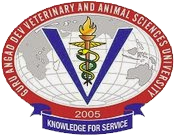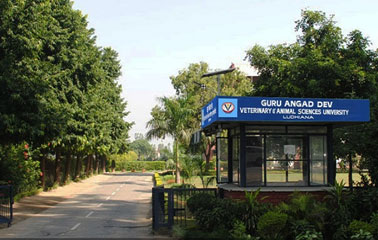

A national level training program on “Advances in Diagnosis, Therapy and Prevention of Emerging and Re-emerging Diseases of Livestock organized by Department of Veterinary Medicine of Guru Angad Dev Veterinary and Animal Sciences University, Ludhiana commenced on 8th October. Twenty five participants from 15 states of India are participating in this training programme. The Training course was inaugurated by Dr S.N.S. Randhawa, Director of Research and Dean, Postgraduate Studies, GADVASU. Dr H.S. Sandhu, Dean College of Veterinary Science was the Guest of honour.
Speaking on this occasion, Dr B.K Bansal, the Course Director emphasized that the .jpg) changing management practices and evolutionary changes in pathogens is posing new challenges to the veterinary profession by emerging and re-emerging infectious, production and various pollutant induced diseases of livestock. He also apprised the participants about the latest developments in the diagnosis, therapy and prevention of emerging and re-emerging diseases of livestock. Hands on training will be provided to the participants on the latest techniques of diagnosis viz; ECG, endoscopy, echocardiography and management of digestive and mineral disorders, mastitis, lameness, abdominal pain management in farm animals. The participants will also be apprised about the emerging infectious diseases responsible for decreased production and reproductive efficiency.The faculty members and experts from other state universities such as Himachal Pradesh, Jammu, Tamilnadu, and UP have been invited to deliver lectures and practical demonstration during the training programme.
changing management practices and evolutionary changes in pathogens is posing new challenges to the veterinary profession by emerging and re-emerging infectious, production and various pollutant induced diseases of livestock. He also apprised the participants about the latest developments in the diagnosis, therapy and prevention of emerging and re-emerging diseases of livestock. Hands on training will be provided to the participants on the latest techniques of diagnosis viz; ECG, endoscopy, echocardiography and management of digestive and mineral disorders, mastitis, lameness, abdominal pain management in farm animals. The participants will also be apprised about the emerging infectious diseases responsible for decreased production and reproductive efficiency.The faculty members and experts from other state universities such as Himachal Pradesh, Jammu, Tamilnadu, and UP have been invited to deliver lectures and practical demonstration during the training programme.
Dr. H.S. Sandhu said that it is a matter of pride that the department of Veterinary Medicine has developed many state of the art facilities for disease diagnosis and treatment. The learned and devoted faculty of the department is working hard to provide health care facilities to farmers, imparting training to field veterinarians and undertaking undergraduate and postgraduate teaching and research. I hope this training will provide an excellent opportunity to the participants to update their knowledge about various emerging and re-emerging diseases of the livestock.
Dr S.N.S. Randhawa, Director of Research said that the changing climate, development of drug resistance, widespread human and animal movement and increase in livestock and livestock products trade has resulted into increase in incidence of diseases which were thought to be of little importance in the past. Moreover, the coming up of organized dairy farms and intensive feeding and management practices has lead to emergence of production diseases like ketosis, mastitis and lameness. He further said that this course will certainly help in developing linkages among institutions. Dr S. K. Uppal expressed vote of thanks.
